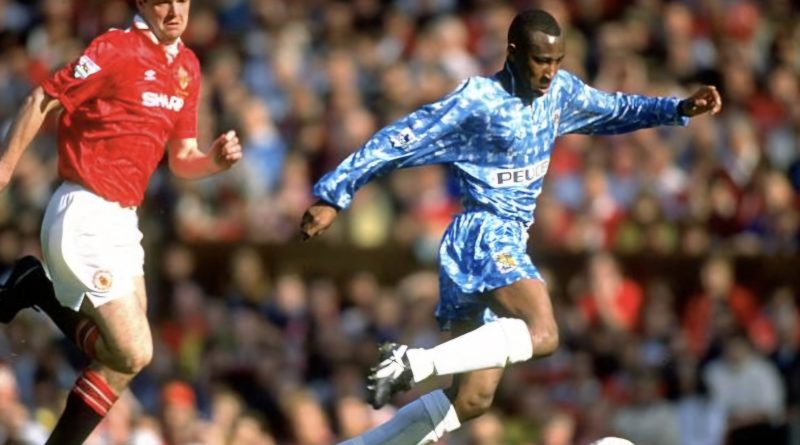How Peter Ndlovu’s Career Might Have Unfolded Had He Signed For Arsenal In ’93?
In the summer of 1993, as the sun cast a golden hue over the English countryside, the football world was buzzing with anticipation. The Premier League was in its infancy, and clubs were scrambling to assemble squads that could compete at the highest level. Among them was Arsenal, a club steeped in history and ambition, eager to reclaim its place at the top of English football.
At the heart of Arsenal’s scouting efforts was a young, dynamic forward named Peter Ndlovu, who had just completed a stellar season with Coventry City. The Zimbabwean international had made waves in the league since joining from Highlanders in 1991, showcasing his blistering pace, technical skill, and an uncanny ability to find the back of the net. His performances had not only caught the eye of Coventry’s management but also that of Arsenal’s legendary manager, George Graham.
As the Gunners prepared for the new season, Graham saw in Ndlovu the perfect complement to his existing squad. With Ian Wright leading the line, the addition of Ndlovu could provide the pace and flair that would stretch defenses and create opportunities. Arsenal’s board was intrigued, and discussions began about bringing the talented forward to Highbury.
Arsenal’s interest arose shortly after Manchester United had set a new British transfer record by securing Roy Keane for £3.75 million. The Gunners were willing to go above and beyond for Ndlovu, who had dazzled audiences with his electrifying speed and flair, solidifying his status as one of the league’s most thrilling wide players.
However, the transfer was not without its complications. Coventry, having just secured their place in the Premier League, was reluctant to part with their star player. They had plans to build around Ndlovu, who had quickly become a fan favorite. Meanwhile, Arsenal faced competition from other clubs, eager to secure the services of the promising forward.
As negotiations dragged on, Ndlovu found himself at a crossroads. He was flattered by Arsenal’s interest, but he also felt a sense of loyalty to Coventry, who had given him his first taste of English football. Ultimately, the deal fell through, and Ndlovu remained at Coventry for another season.
In the following years, Ndlovu continued to impress in the Premier League, becoming the first African player to grace the competition. His performances were a testament to his talent, and he quickly became a symbol of hope for aspiring African footballers. However, one couldn’t help but wonder how his career might have unfolded had he signed for Arsenal.
Formidable Partnership: Had Ndlovu joined the Gunners, he would have played alongside some of the best talents in the league. The combination of his speed and Wright’s finishing prowess could have formed a formidable partnership, one that might have led Arsenal to greater heights during the mid-’90s. With Ndlovu’s flair and creativity, the Gunners would have been invincible.
Increased Exposure and Development: Playing for a top club like Arsenal would have provided Ndlovu with greater exposure to high-level competition. Training alongside elite players and competing in European tournaments could have accelerated his development and enhanced his skills.
Legacy as a Premier League Icon: Ndlovu could have become a key figure in Arsenal’s history, potentially leading to a legacy similar to that of other club legends. His status as the first African player in the Premier League could have been further solidified, inspiring future generations of African footballers.
Impact on African Representation: Ndlovu’s success at Arsenal could have paved the way for more African players, especially those from Zimbabwe, to join the English Premier League.

